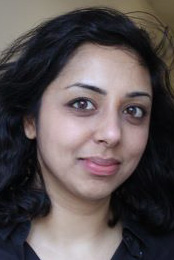


|
||
|
||
A few weeks ago, a new vacancy was added to the UN Webpage for Senior Leadership Positions, inviting applications to become the new Tech Envoy.
This position has a long and unfortunate backstory. It was created in 2019 as a new role, as an outgrowth of the UN’s High-Level Panel on Digital Cooperation and the UN Secretary General’s Roadmap for Digital Cooperation—with a vague remit to “advise senior leadership of the United Nations on key trends in technology and… serve as an advocate and focal point for digital cooperation”. From the outset, the selection process was opaque, with no open call issued; provoking a joint position paper from civil society groups (including GPD) recommending an open and transparent appointment process and suggesting criteria for consideration in the appointment.
These recommendations were not heeded. At the beginning of 2020, the Secretary-General announced the appointment of Fabrizio Hochschild Drummond, a long-time UN diplomat widely seen as the architect of UN’s strategy for new technologies and the High-Level Panel. Almost immediately, allegations of sexual misconduct and bullying surfaced, leading to his suspension, a year-long investigation, and the search for a new Tech Envoy.
Has anything been learned? This time, there is at least an open call for applications—an obvious improvement in terms of transparency. But there has been almost no effort to share the call widely (it doesn’t even appear on the webpage of the Office of the Tech Envoy), and the UN has indicated that it doesn’t plan to share information about who has applied. Rumours are already circulating that a frontrunner candidate hadn’t even heard about the open call. The timeline is also short—especially considering that it was launched at a period of festive holidays for many, with January coinciding with summer holidays in the Southern Hemisphere.
This is all highly concerning. The Tech Envoy will serve as a critical advisor to UN leadership at a time when the impact of digital technology is affecting every corner of life; and when geopolitical tensions and political agendas are leading to a fragmentation of the internet with serious implications for human rights.
In response, we’ve joined with civil society stakeholders to again recommend that the Secretary-General consider an extended timeline for applications and share more information on the process (e.g names of candidates who applied, shortlist, criteria for selection) to support greater transparency and drawing on lessons learned from elsewhere at the UN.
This all takes place amid a wider debate around civil society inclusion in multilateral forums relating to digital technology. At the Open-Ended Working Group, a UN First Committee process that deals with responsible state behaviour in cyberspace, modalities around stakeholder inclusion still haven’t been decided months after the process was was set up—and it looks increasingly likely that there will be no participation of NGOs at the second meeting of the group in March. Last year, the Future Tech Forum—hosted by the G7 host, the UK—was invite-only, and no aspect of it was live-streamed. The US Summit for Democracy and the Danish Tech for Democracy Summit fared somewhat better, engaging civil society in a relatively systematic fashion. However, the controversial US plan to launch an Alliance for the Future of the Internet at its Summit was up-ended by pushback from non-governmental stakeholders, including those involved in the long-standing Freedom Online Coalition—a situation which could have been avoided with adequate stakeholder engagement.
There are numerous important multilateral discussions relating to digital tech on the horizon this year, both at the UN and elsewhere—including at the UN First Committee, Third Committee, ITU, the G7, EU, OECD and the Summit for Democracy. It’s essential that civil society and governments who are committed to protecting and expanding civic space push for meaningful openness and transparency across the board.
The Office of the Tech Envoy will, among other things, play an important role in supporting the development of a “Global Digital Compact” (the latest in the UNSG’s commitments to supporting UN cooperation on digital tech governance). It’s crucial that all stakeholders are able to play their role in such a process. This won’t be easily achieved—but an open and transparent process to appoint a UN Tech Envoy would be a good start. It’s not too late.
Sponsored byRadix

Sponsored byDNIB.com

Sponsored byIPv4.Global

Sponsored byWhoisXML API

Sponsored byVerisign

Sponsored byCSC

Sponsored byVerisign
